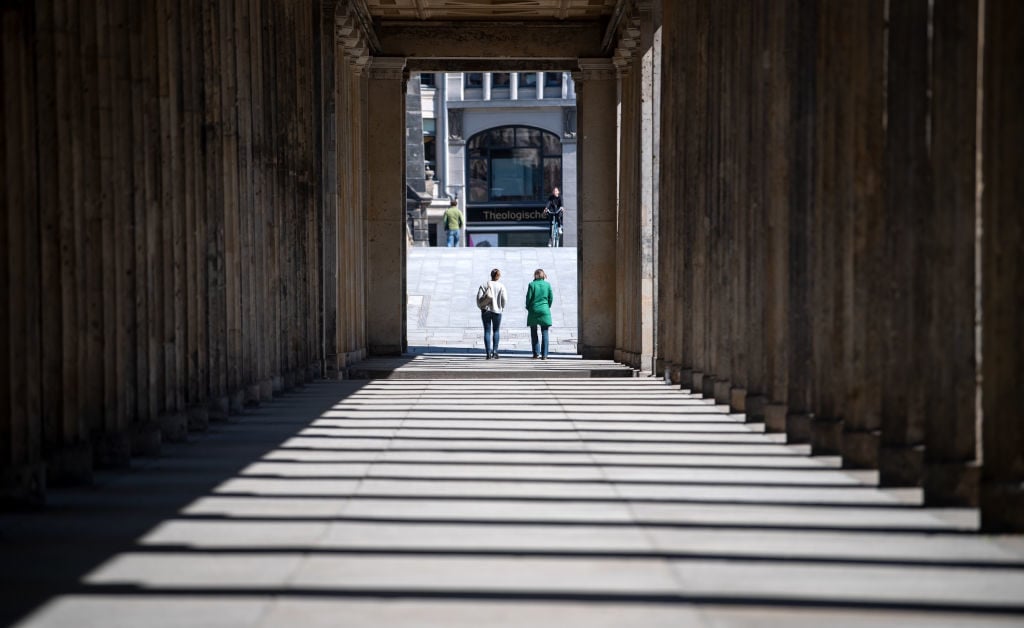Art World
As Lockdowns Remain in Force Across Europe, Museums Are Grappling With the Reality of Several More Weeks of Closed Doors
Cultural institutions in the UK and on the continent are facing extreme uncertainty.

Cultural institutions in the UK and on the continent are facing extreme uncertainty.

Kate Brown

Seventy-seven days after it closed, the Uffizi Gallery in Florence was reopened by director Eike Schmidt on January 21, welcoming nearly 800 visitors in its first week. For a museum of its scale and stature, it is a low number.
But as many museums in the UK and Europe remain closed indefinitely, it’s a figure worth bragging about.
The situation in the UK, where a new variant of the coronavirus was identified in September, is especially critical, say experts.
“The latest lockdown is a body blow and is leaving our museums and galleries fighting for survival,” Jenny Waldman, director of the Art Fund, said in a statement. The UK charity released another £750,000 in grants in emergency funds to help 23 museums this month, but it says more help is needed.
The organization is continuing its fundraising campaigns, and has renewed its appeal for support, inviting artists Howard Hodgkin, Jeremy Deller, and Cornelia Parker to offer limited-edition works to support its efforts.
David Green, director of the Florence Nightingale Museum in London, one of the Art Fund’s beneficiaries, says his museum remains in dire straits, and that it runs the risk of insolvency. “The pandemic has left us on our knees,” he says.
How long lockdowns will continue is an open question. Last week, British prime minister Boris Johnson suggested they may even last into the summer.
Elsewhere in Europe, the situation is uneven. In Belgium, culture was deemed essential and museums were allowed to remain open. But in neighboring France, all museums remain closed after a projected December reopening was called off. Earlier this month, the Louvre reported a 72 percent drop in visitors in 2020, with losses totalling €90 million.
In the Netherlands, protests broke out in Amsterdam over an extended lockdown and a newly introduced 9 p.m. curfew–incidentally, protesters were tear-gassed outside of the Van Gogh Museum as the demonstrators took to the large museum-lined square in the heart of the city.
Last Tuesday, January 20, the Dutch Museums Association said that situation was dire for museum workers after a survey revealed that jobs were going to be permanently lost in the museums sector. Some 30.5 percent of museums who participated in the association’s recent survey said that temporary contracts have not been renewed and that 10 percent of fixed staff were fired. The association emphasized the need fo further emergency aid to prevent more losses in 2021.
In Germany, where museums have been closed since November and must remain so until at least February 14, signs of wear are also showing, and some curators are throwing up their hands. At the K21 in Dusseldorf, a major Joseph Beuys show set to open in May will simply go online if need be, the museum told Artnet News.
“For months, museums have supported the necessary decisions to protect against the coronavirus,” Eckart Köhne, president of the German museums association, said in a statement. “But the need is becoming greater and greater for many of [those] who have no financial cushion after months of closures.” Around 50 museum directors, including Marion Ackermann from the Dresden State Art Collections and Yilmaz Dziewior from the Museum Ludwig in Cologne, signed an open letter to German culture minister Monika Grütters to emphasize the importance of the cultural service they can safely provide.
Grütters has said she plans to push for more financial aid, looking to secure €1.5 billion to help cultural organizations recover from the second lockdown, according to Monopol. Museums, she said through a spokesperson, should not be the last to reopen.
For now, at least some countries have reopened museums to cater to local populations.
“The crisis is not yet behind us, but we still have this as a signal: the importance of culture and direct access to culture,” said Schmidt, the Uffizi director. “It is a sign of hope.”